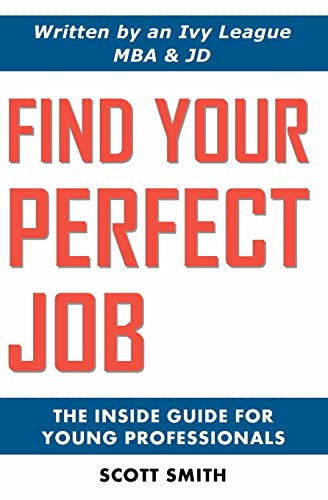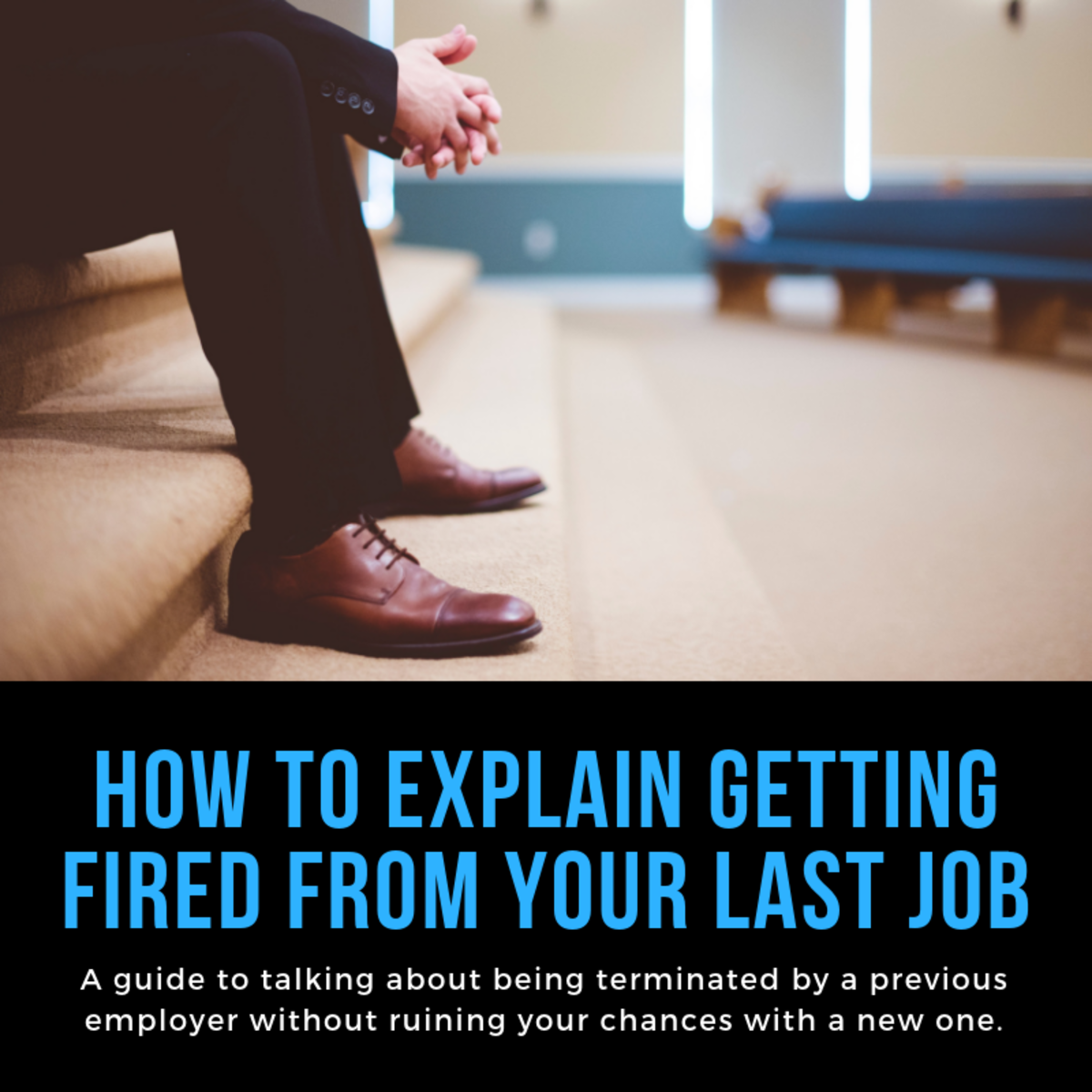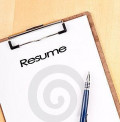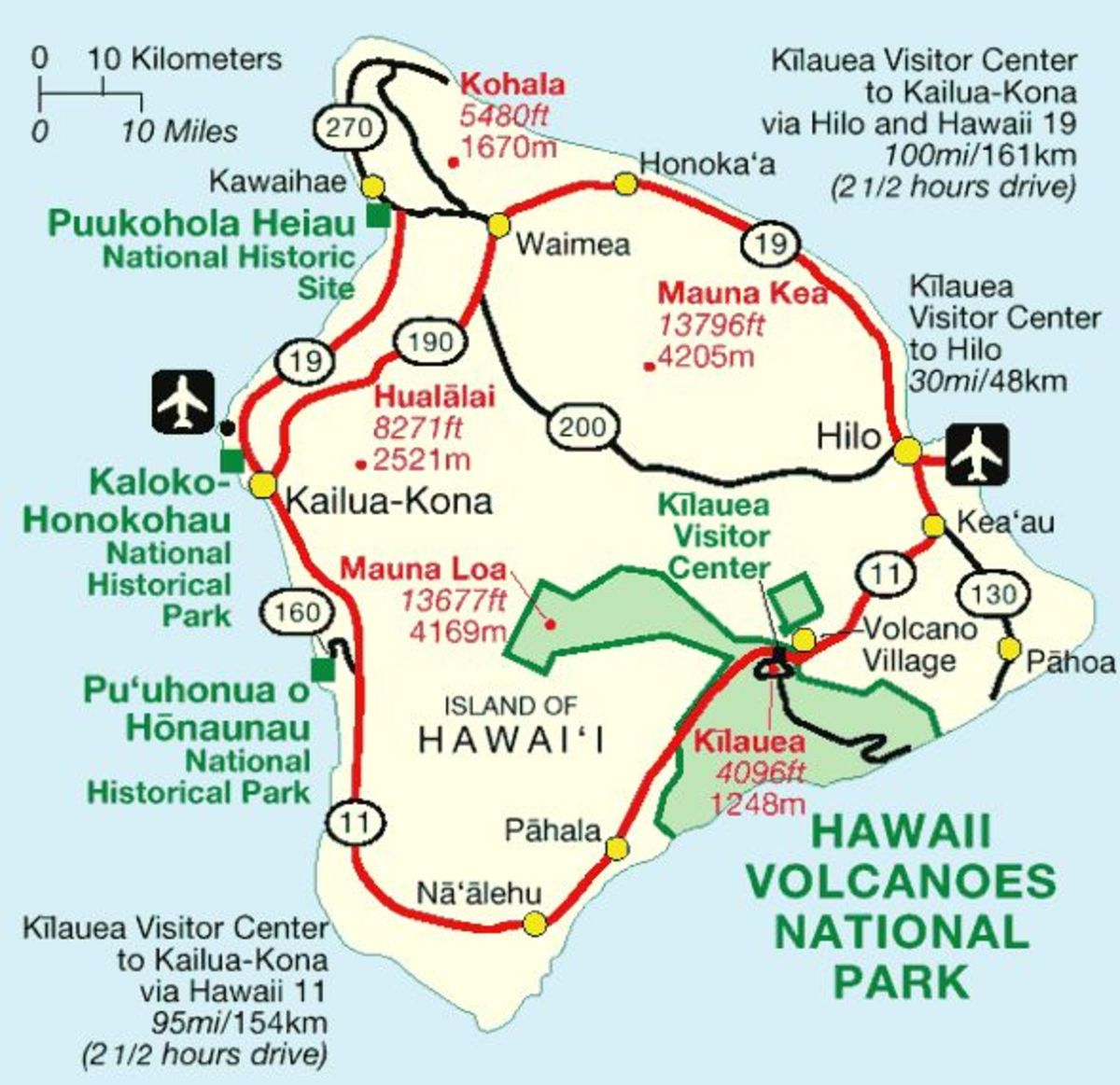How to Find a Perfect Job

Anyone who's searched for work knows that finding a good job, one that's financially fulfilling and enjoyable, isn't as easy as opening up the job ads section of the local newspaper and making a few phone calls. While it is possible to land a job this way, it would likely end up being something you wouldn't enjoy doing. If good jobs came that simple, there wouldn't be anyone out there willing to wash dishes or clean bathrooms for minimum wage. While this may have been acceptable employment during high school, if you're an adult, and would really like to land that good job you know you deserve, unless you really need the money, there's no point in settling for anything less desirable. But unless you have some exceptionally outstanding connections in the type of profession you would prefer, you have to prepare yourself for a lot of competition for the good available jobs out there, and that's where the work you should expect in your job search begins.
Where To Begin Looking
If you have a computer with internet access, as most people these days do, you're probably aware of a few good web pages where jobs are regularly posted: Monster.com, Indeed.com, and Craigslist, are a few good ones to start accounts in, and begin searching for work. And yes, I did say Craigslist: it's not just a site to use for buying and selling used items. Don't narrow your search to just one website, however, as you may miss out on opportunities posted elsewhere, and don't shy away from the newspaper ads either, as there are still employers out there who don't advertise jobs online. Be sure to go a step further than just reviewing advertisements, however, as a lot of the best jobs don't even get advertised. Employers aren't always certain how to deal with open positions. As such, they sometimes go weeks or even months without posting ads to fill them. If you're made aware of such a situation, you can turn it into an opportunity to express your talents to these employers. As such, talk to people you know who may have information about potential openings in your preferred profession. And don't underestimate your acquaintances. Just because they may not be in the same profession in which you're looking for work, they certainly may know people who are. Tell everyone you know that you're looking for work, and the kind of work you're looking for. If you're fortunate, and able to express your worth to an uncertain employer's interest, you may land a job you desire that wasn't even available.
The Resume
You're resume needs to be phenomenal before you send it to any employers. By that, I can't stress the importance of making sure there's no typos. Review it for grammar and spelling errors several times before dropping it in the mail, or submitting it as part of a job application online. Make sure, in addition, that it's not too long. When it comes to resumes, quality is far more important than quantity. It helps if you can fit it all within a single page, but try not to make it any longer than two pages. No employer is gonna want to read through five paragraphs about your daily responsibilities as a security guard, (information that may not be boring to you personally, but most likely will be to them). Write a very brief and good quality description of the responsibilities you had for each of your past employers, and move on. Highlight your skills, accomplishments, honors, and achievements as well, as these are certainly the strong points you'll want employers to know about. Use a standard format, and keep it professional..nothing cute: no pop-up photos, no colorful backgrounds, and certainly no little smiley faces. These may impress your friends on Facebook and Myspace, but they're almost certainly gonna turn off potential employers. Remember, your resume is where you sell yourself on paper to the hiring recruiters for the positions you seek. It's not a place to be entertaining, modest, humble, or overly arrogant. But do be honest. Not only is keeping information in resumes honest a good habit for your own personal growth and character, employers can cross-check your information for its truthfulness. Even if they discover a lie in your resume after hiring you, it's typically valid grounds for termination, but if they find a false remark before the hiring process, I can assure you that's one employer you'll never be working for.
The Cover Letter
Not all job advertisements will ask for a cover letter, but if a cover letter is requested, make sure to include one with your resume. The perfect cover letter is typically three paragraphs long: your first paragraph is your introduction, your second should contain your cover letter's body of information, and your third is your conclusion. The introduction is typically where you disclose how you happened to discover the job ad, and why you decided to respond to it by applying for the position. The body of information is the most important part. This is where you describe your unique talents and skills that make you a good fit for the available position. You can do this by elaborating on information within your resume that's relevant to the position you're applying for, and talking about specific experiences that will make you stand out amongst other applicants. Make sure you've carefully read the job description and requirements within the job ad before writing this, as they will serve as a guide as to the particular skills and experiences you will want to include in your cover letter's body. For this reason, you should draft a specific and unique cover letter for each job you apply for. Don't treat it like your resume by sending the same template to every employer, as every employer will likely be looking for something different. As for the conclusion, this is where you inform the employer the best way to contact you, and where you reaffirm your interest in the position. Remember that employers do not request cover letters to make your job of seeking work more difficult. Rather, they do it as a means of getting to know you better for the purpose of determining whether or not you're suitable for an interview. As such, you should never underestimate their importance with regards to your job search.
Followup Phone Calls
Unless you've been instructed not to contact a certain employer by phone, contacting employers you've sent your resume to a couple days after applying for available positions is a good habit to get into. If you do not know the company's phone number, the company's web site is typically the best place to find it. If the company has a human resources department, that's always the phone number to dial. If they do not, contact the company's main phone number, in which case a receptionist, or secretary is likely to answer. When this happens, always ask for the person who does the hiring. If you don't know the name of that person, just ask for the hiring recruiter. If the hiring recruiter isn't available to speak, it's usually best to try back later, rather than to leave a message. Just say you'd rather not trouble him or her with the need to call you back, and ask for a better time to call. When you do eventually get in touch with the person who does the hiring, just start by saying you applied for the available position, and you wanted to make sure your information was received. If they answer in the affirmative, and they don't sound too busy to talk, this is a good opportunity to ask some questions about the position you've applied for. Good questions to ask include, whether or not they have a deadline for filling the position, when they plan on starting the interview process, and how many people they plan to interview. Take advantage of any opportunity to sell your talents in such conversations. If he or she starts asking you questions, don't say we can discuss that at the interview, start building yourself up. Have your resume in front of you, as he or she likely will, in case questions about it are asked. With a little luck, you might end up getting hired this way without even being interviewed.
Cold Visiting
Don't narrow your social networking to only the people you already know. Get out there and meet new people who may be of assistance with your particular job search. It helps enormously to dress up in your best attire and start cold visiting the businesses in your area that offer the kind of work you're looking for. Build a list of businesses you want to stop at first, take along several copies of your resume, (along with other documents you think employers might ask for, such as references, and transcripts), and simply start walking into the companies on your list during business hours. It takes a little courage, but believe me, having done this many times myself, it can lead to very beneficial information. Just ask each receptionist after you enter if there's a professional there you can speak with. If he or she asks why, just say you're interested in this profession, and you're looking for more information about it. Don't ever say you're looking for work, as the receptionist is likely to respond by saying, "we're not hiring right now." (That goes the same after you get your foot in the door with the professional there you wish to talk to). The worst thing the receptionist can tell you is that there's no one there available to speak at that time, in which case you should ask him or her for a business card, or a phone number to someone there you can contact later. (At the very least, you're likely to leave with a phone number to a professional there whom you can contact at a later time). If a professional there is available to speak, (and in my experiences, this has been the case at more than half the places I've visited), once you're inside the office, or conference room for a discussion with him or her, simply begin asking civilized questions, and learn in the process what you can about potential available employment in that profession without actually saying you're looking for work. If you eventually discover through conversation that their company isn't hiring, ask whomever you're speaking with if they know of any other people you could talk to who may have information about the profession you're discussing. Always be polite, and thank him or her for their time and information before departing. A final note on this topic, if you're given names and numbers of other people to contact, when you do eventually contact these leads, make sure to tell them who referred you. It helps tremendously for them to be informed that you were referred to them by someone they know.
Interviews
If you're serious about finding a perfect job, and you follow the steps referenced above, you'll eventually start getting contacted to come in for interviews. If you're a people person, this probably shouldn't frighten you very much, but don't be overly confident. If you haven't been to many interviews over the past ten years, it helps to rehearse a little bit in advance. Interviewers like to catch you off guard, asking questions you're rarely asked in your more common social interactions with people. Questions like, "what's the one thing about you that you think needs the most improvement," "describe a situation in which you didn't get along with a co-worker," and "how do you handle stressful situations?" A word of advice regarding questions like these, if an interviewer asks you to tell them something potentially negative about yourself, be honest with your answer, but always follow up with something positive, like the positive way in which you've handled the negative situation or trait the interviewer just had you disclose. Tell your interviewer how you've improved at whatever it is they've asked you about over the years. And if you find yourself stuttering, don't panic. Remember that they ask questions like these to everyone they interview. Keep your chin high, maintain eye contact, and stay vibrant and moderately confident. This may sound funny, but when I'm being interviewed, and unexpected questions are being asked, I sometimes even imagine there's a video camera pointing at me, and I'm a famous actor improvising an interview scene for a big movie. Could you ever imagine Brad Pitt, or George Clooney responding to a question in an interview in a big action movie by turning their heads with defiance and saying, "oh gosh, that's a tough one, you better let me think about that for a little while." Unless they're playing the lead role in the remake of Forrest Gump, you know this would never happen in such a movie scene. And there's no reason for it to happen in real life either. Even if you think a better answer will come to you in time, never pause very long to contemplate the best response. A good answer delivered immediately is better than a perfect answer ten minutes later. The main thing to remember, however, is that you're there to sell your talents. If you honestly believe the job is a good fit for you, then there's a good chance that employer needs you more than you need that employer. Make sure they know this by the time you're finished with the interview. The interviewer also needs to know that you're interested in the job you're interviewing for, and not just there to kill time. As such, assuming you are still interested in the position after showing up for the interview, make sure your interviewer is aware of this interest. Expressing knowledge of the company filling the position, along with its employees, is a good way to do this. Thus, make sure to research that employer before your interview, (at the very least, review their web page, and all its links), and ask questions during your interview based on your research. Even if they don't end up hiring you, displaying that you know their company well leaves a good impression with that employer, which can obviously be beneficial when they have subsequent similar job openings.
After the Interview
No matter how well you think an interview may have gone, if you're unemployed and need work, you should never pin your hopes to one employer. Keep searching for work while you wait for that employer to contact you. It may take them a while to get through the interview process and make a decision. In the meantime, keeping other good job options available will help you ensure eventual success with your search. If you haven't heard anything after a week, however, it never hurts to contact that employer to find out where they're at with the hiring process. Be casual and polite, and certainly don't get angry if you're told it may take a while. If you've interviewed for a position, any employer, worth anything, will eventually contact you. And if it doesn't turn out to be the news you wanted to hear, there should be plenty of other good job opportunities out there that may turn out better. Think of it as one "no" closer to an inevitable "yes." Good jobs don't come easy, but so long as you stay motivated, and busy searching for that perfect fit, you're bound to eventually land the job you deserve.










